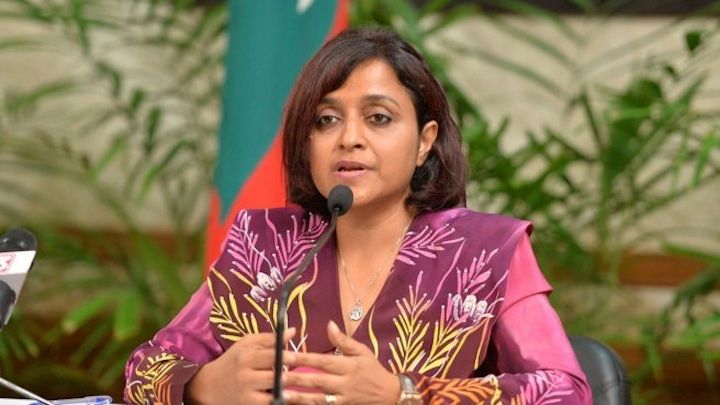Maldives foreign minister resigns citing opposition to death penalty
Foreign Minister Dunya Maumoon has resigned his afternoon, citing opposition to the government’s plans to implement the death penalty.

05 Jul 2016, 09:00
Foreign Minister Dunya Maumoon has resigned this afternoon, citing opposition to the government’s plans to implement the death penalty.
In a statement shared with the media, Dunya said the resignation was “one of the most difficult decisions” she has taken.
“Yet, the decision became inevitable because of the profound differences of opinion on the government’s policy in implementing the death penalty at a time when serious questions are being asked, and concerns being expressed, about the delivery of justice in the Maldives,” she said.
She added: “I remain convinced that the Government’s policy on death penalty, decided on a hasty fashion, would be detrimental to the image and reputation of the Maldives and would be a significant obstacle in achieving President [Abdulla] Yameen’s foreign policy goals, and building a resilient Maldives.”
Become a member
Get full access to our archive and personalise your experience.
Already a member?
Discussion
No comments yet. Be the first to share your thoughts!
No comments yet. Be the first to join the conversation!
Join the Conversation
Sign in to share your thoughts under an alias and take part in the discussion. Independent journalism thrives on open, respectful debate — your voice matters.




